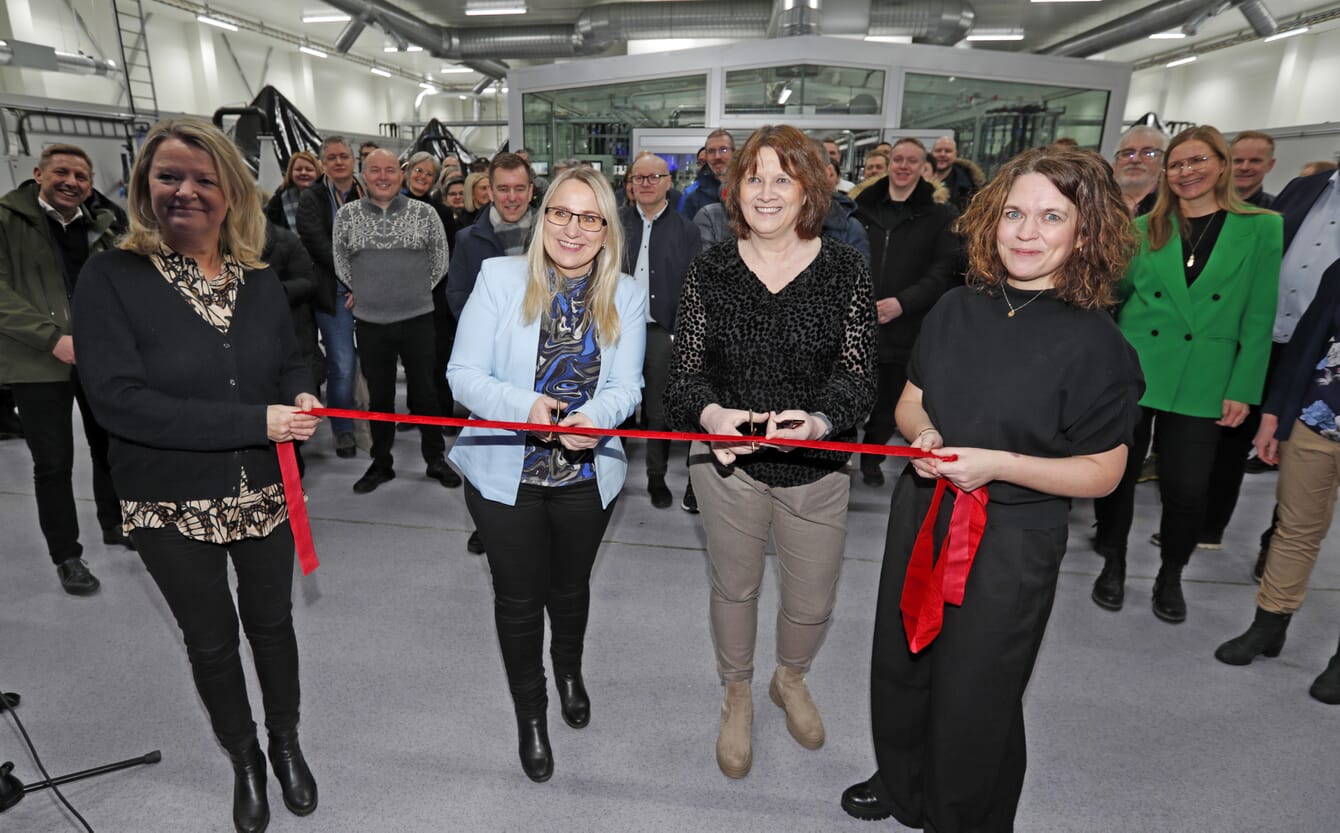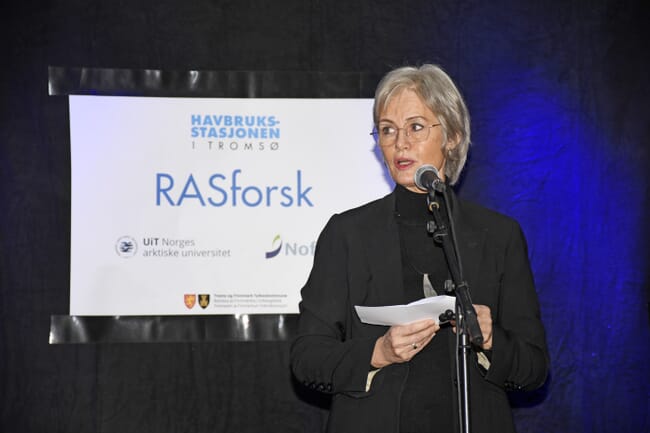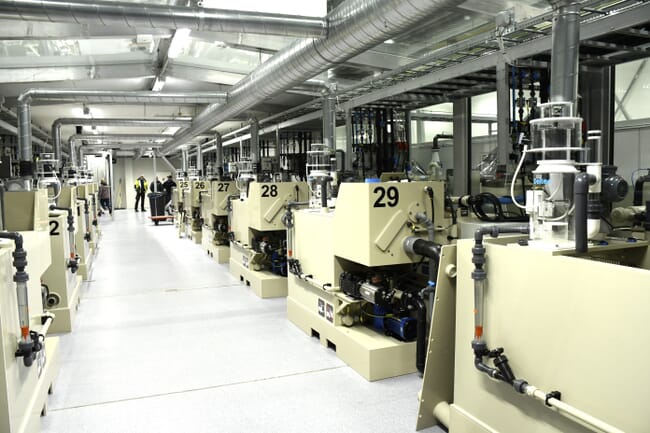
From the left: Grete Sollesnes Winther (chairman), Karin Eriksen (Troms and Finnmark county), Kristina S Hansen (State Secretary for the Minister of Fisheries and Ocean Policy) and Kathrine Tveiterås (The Arctic University of Norway). © Rune Stoltz Bertinussen, Nofima
In a newly constructed 1,350 m² hall, the educational and research facility promises to create training opportunities for young people, contributing to jobs in rural areas and providing the aquaculture industry with greater knowledge of onshore fish farming and the sector’s wider needs.
“The aquaculture industry is undergoing rapid technological developments, and in order for education and research to keep up, it is essential that modern research facilities are developed in line with national requirements. There is a great need for training and transfer of knowledge to the industry, also in the north,” says Rita Sæther, general manager of the Aquaculture Research Station in Tromsø.
The RASforsk facility and represents an investment of almost NOK 90 million (€8.397 million) . Troms and Finnmark county municipality have contributed NOK 13.5 million to the project. State Secretary Kristina S Hansen (Ap) from the Ministry of Trade, Industry and Fisheries and county councillor for industry Karin Eriksen (Sp) cut the ribbon in an opening ceremony in Kårvika on Ringvassøya.

The modern research facility will aid in training and knowledge transfer for Norway's aquaculture industry © Rune Stoltz Bertinussen, Nofima
A soon as the facility is up and running, northern Norway’s aquaculture industry in the will have an education and research facility where they can learn about recirculating aquaculture systems (RAS). It is one of the world’s most advanced research facilities for onshore fish farming.
RAS is an advanced system that treats water from fish tanks and reuses it. RASforsk can take in both fresh water and sea water as needed. To avoid high energy consumption, almost 100 percent of the water is recycled. There are numerous and complex considerations that must be taken into account for fish farming on land to work. Not least, fish welfare.
“Fish welfare is very important, and technology must thus be adapted to the fish’s requirement for good water quality. This means that temperature, salinity, oxygen, carbon dioxide, ammonia, pH and biofilter activity must be closely monitored. This can be demanding, and education and research are important for the aquaculture industry to develop its use of RAS technology,” says Bente Torstensen, division director at Nofima.
The Aquaculture Research Station in Tromsø is jointly owned by Nofima and UiT The Arctic University of Norway. The joint ownership agreement allows both UiT and Nofima to take advantage of advanced infrastructure and use resources efficiently. It also presents more opportunities for collaborative projects.
“Training candidates in an active research community is an unconditional benefit both for knowledge and industry development,” says Katrine Tveiterås, pro-rector at UiT – The Arctic University of Norway.
“The industry needs more minds who know RAS and there we have a particularly important task to train candidates who can contribute to healthy fish, better fish health and sustainable production. We are pleased that RASforsk gets better facilities for this. Because developments are so rapid, it makes sense to coordinate research, education and industry partnerships, which joint ownership of the Aquaculture Research Station enables,” Tveiterås says.

The facility will hold 18 1m³ tanks and six 9m³ tanks, all with separate recirculation systems © Rune Stoltz Bertinussen, Nofima
RASforsk is now ready for use and is open for flexible experimental opportunities. The facility boasts 18 1m³ tanks and six 9m³ tanks, all with separate recirculation systems. Because this is a new build, the facility is flexible and the recirculation systems and tanks can be interconnected as needed.
“Modern infrastructure for education and research is important for an industry undergoing both biological and technological development,” says State Secretary Kristina S Hansen of the Ministry of Trade, Industry and Fisheries.




